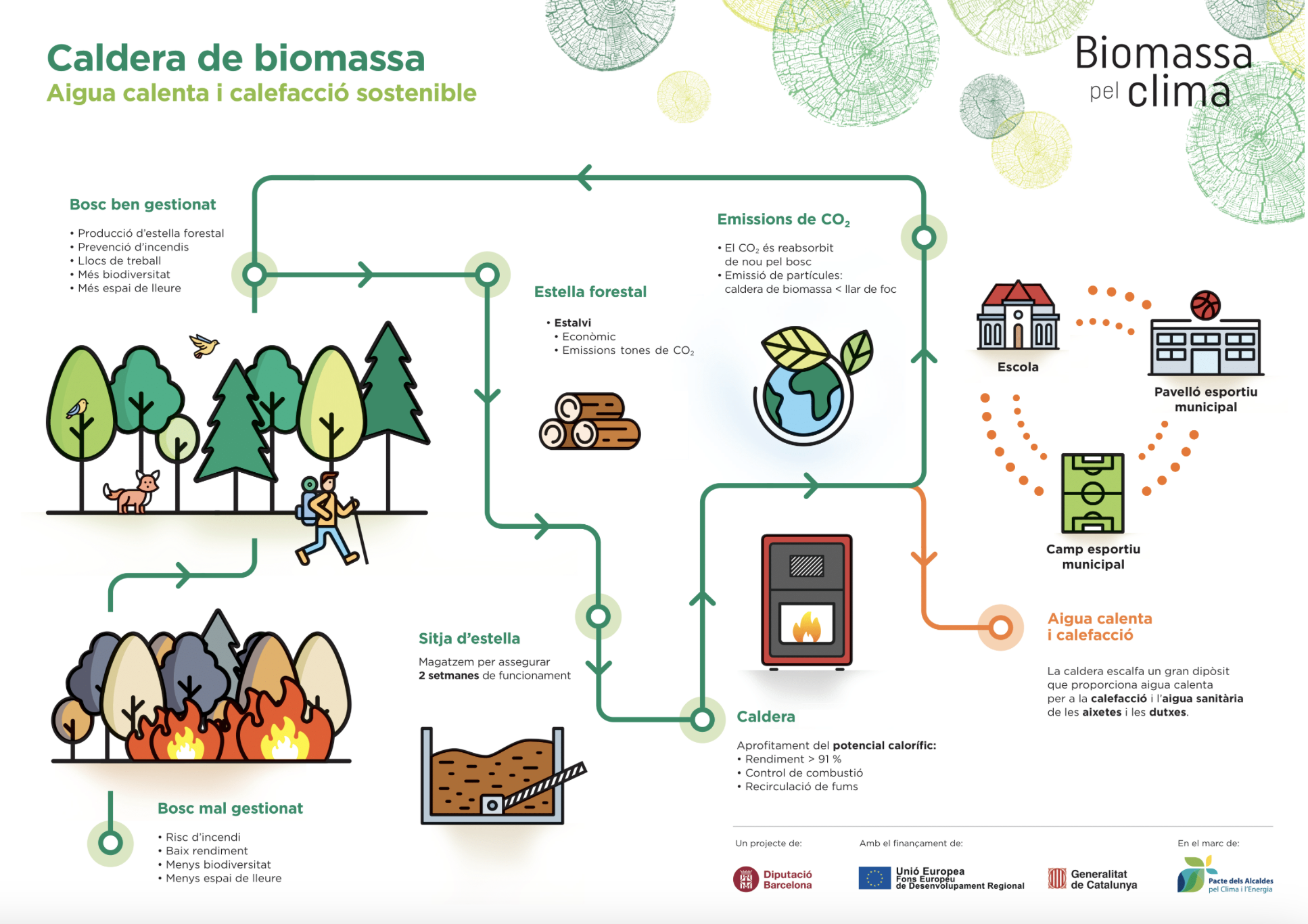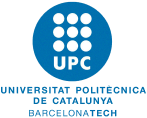News
Biomass: Renewable Energy for a Sustainable Future
Transforming Forest Residues into Renewable Energy to Combat Climate Change

The “Biomassa pel Clima” project, promoted by the Diputació de Barcelona, has established itself as a key initiative to drive the transition to renewable energy in the province’s municipalities. Based on the use of forest residues, the project offers an innovative solution to reduce greenhouse gas emissions, promote the local economy, and advance towards an environmentally and economically sustainable model.
Energy from the forest
Biomass emerges as a viable alternative to fossil fuels. This renewable energy source is produced from organic materials such as pruning remains and other forest residues. By using biomass boilers in municipal facilities, such as schools and sports centers, dependency on natural gas and diesel is reduced, contributing to the decarbonization of daily activities.
In addition, this sustainable forest management helps mitigate the risk of forest fires, a growing concern due to climate change and the lack of maintenance in certain forested areas.
Savings and benefits for municipalities
One of the project’s key strengths is the economic savings it generates. Municipalities that choose biomass can reduce energy costs, as wood chips are more competitively priced than fossil fuels. This not only benefits public budgets but also makes renewable energy an attractive and sustainable option for the future.
Positive impact on the local economy
The production and distribution of biomass boosts the local economy by generating employment in rural areas. Associated activities, such as forest management, chip production, and distribution, help revitalize these regions while contributing to a sustainable energy transition.
A replicable model
The “Biomassa pel Clima” project also serves as an example for other regions seeking to implement renewable energy solutions. The results demonstrate that it is possible to transition to a low-carbon economy using accessible resources and proven technologies. This makes the model replicable and adaptable to other areas, extending its positive impact beyond the local level.
Education and environmental awareness
In addition to its practical benefits, the project has an important educational component. Awareness campaigns about biomass as a renewable energy source foster a shift in mindset among citizens and public administrations, creating a culture of sustainable resource use.
Conclusion: a greener future
“Biomassa pel Clima” is more than an energy project; it is a declaration of intent on how to tackle climate change and improve the quality of life in communities. With the support of bold public policies and efficient resource management, biomass stands as a cornerstone for building a more sustainable, economically viable, and environmentally respectful future.









